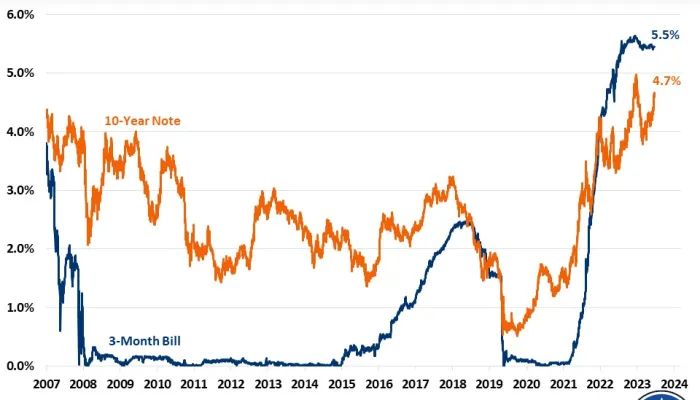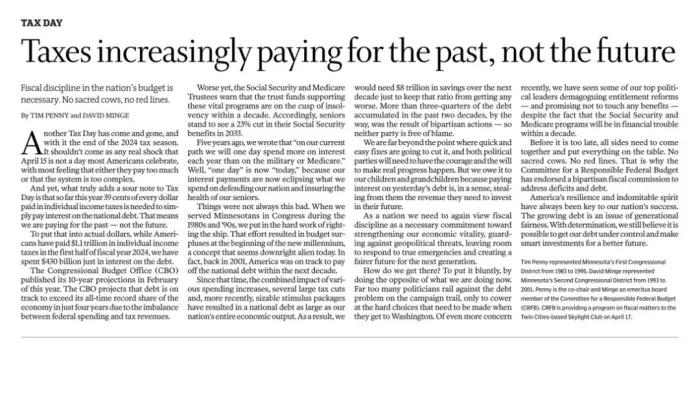Gleckman: A Return to Fiscal Normalcy but Not For Long
In response to the release of final FY 2014 deficit numbers, Tax Policy Center's Howard Gleckman writes that this year's outcome just returns the budget to "fiscal normalcy" -- and only temporarily. Although the deficit has fallen significantly in recent years, this year's budget is largely in line with the averages of recent decades.
In 2014, federal tax receipts reached 17.5 percent of GDP, a level unseen since 2007, just before the economy cratered. That’s only slightly higher than the 40-year average of about 17.4 percent of GDP.
....
The story is similar on the spending side. In 2009, federal outlays topped out at 24.4 percent of GDP. By the fiscal year just ended, they had declined to 20.3 percent, a shade below the 40-year spending average of 20.5 percent.
Of course, as we have noted since the FY 2014 numbers came out, this reversion to mean is only projected to be temporary. Gleckman aptly describes the challenges facing policymakers going forward and why the already-grim long-term budget projections may be optimistic.
On the spending side, increasing health and long-term care costs of an aging population have been well documented. Even if you believe that the recent deceleration of the growth of per capita Medicare costs is the beginning of a new normal (a theory upon which healthcare economists vigorously disagree), the aging of the 77-million strong Baby Boom generation will mean more seniors will be receiving Medicare than ever before. And as they begin to reach their 80s, their demands for Medicare and Medicaid (which finances half of all paid long-term care services) will only grow.
CBO figures that between now and 2039, health care spending will double to about 8 percent of GDP. Unless you assume Congress will slash Medicare or sharply cut other programs to accommodate those added costs, overall federal spending is going to blow through its historical 20.5 percent average. The story is a bit different when it comes to taxes.
The CBO baseline assumes tax revenues rise to about 19.4 percent of GDP by 2039. But for that to happen, scores of now-expired tax breaks would have to stay expired—an outcome no one really expects.
We certainly agree with Gleckman that we are not "out of the long-term woods," as he puts it. The recent fall in deficits should be seen as a bounce back from an extraordinary situation, not as a trend towards getting out of our fiscal hole.


